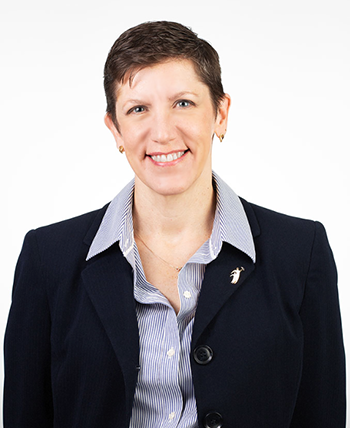|
Industry Insight MercyFirst Appoints Chief Quality Officer
“We are delighted to welcome Mary Jane to MercyFirst and to have someone with her experience help the agency develop and roll out strategies to further enhance the quality of care for the 3,000 children and families we serve annually,” says Renée Skolaski, MercyFirst President and CEO. “Mary Jane’s vast knowledge of child and family services advocacy on all levels—New York State child welfare regulations and data systems, New York City child welfare regulations and policy, and current family and children research and practice trends—makes her the perfect candidate for this important leadership position.” “I am thrilled to join MercyFirst and play a role in helping the agency continue making a difference in the lives of struggling children and families,” Dessables says. “I look forward to collaborating with the agency’s dedicated team of experts to carry out MercyFirst’s mission of helping those in need through high-quality programs and services consistent with industry best practices, accrediting bodies, and regulatory requirements.” Dessables spent the last 21 years in child welfare and nonprofit administration and has a deep understanding of the social services landscape, having most recently served as the director of information, research, and accountability at the Council of Family and Child Caring Agencies (COFCCA). COFCCA is the principal representative for more than 100 not-for-profit organizations providing foster care, adoption, family preservation, juvenile justice, and special education services in New York State. While at COFCCA, Dessables was responsible for advocating for all COFCCA’s member child welfare agencies on matters such as state regulations and funding, as well as for state and city member agencies in support of their state legislative advocacy efforts. She also led the collection and analysis of data, designed data collection instruments, and evaluated methods by which New York City, New York State, and other entities use quantitative and qualitative data to evaluate agency compliance and performance, and advocate for methodology and process improvement. — Source: MercyFirst
BHI’s Qualified Entity Report Confirms Health Inequities Contribute to Diabetes-Related AdmissionsIn its first report as a certified Medicare Qualified Entity, Blue Health Intelligence (BHI) examines the relationships among preventable diabetes, hypertension admission rates, and socioeconomic status (SES) measures to deliver preventive care to reduce avoidable hospitalization. The report’s findings reinforce the profound impact that social determinants of health (SDOH), including SES, have on health outcomes. “This assessment underscores distinct relationships between observed admission rates and the SDOH factors of diabetics living in vulnerable and underserved populations,” says Michele Mercer, BHI’s associate vice president for analytic consulting and data science. “Their hospitalizations and health outcomes are influenced by gender, poverty level, and other factors.” The prevalence of diabetes has significantly increased over the last 20 years, resulting in an estimated 10.5% of the U.S. population being diagnosed with the disease as of 2020. BHI found diabetes is a relevant topic of study due to its high prevalence and ability to be effectively managed if diagnosed early and treated appropriately. BHI’s report analyzes five of the diabetes-related Agency for Healthcare Research and Quality’s Prevention Quality Indicators in relation to various SDOH and demographic factors, such as payer type, age, sex, and SES Index. Findings include the following:
BHI is among a few organizations that the Centers for Medicare & Medicaid Services (CMS) certified as a Qualified Entity. The program requires assessments of national quality of care measures to be reported publicly. For this report, CMS granted BHI access to its Medicare fee-for-service claims data, which BHI combined with its national commercial data set for analysis. “By combining CMS’ Medicare data with BHI’s national commercial data set, we can generate new insights into ways the health care industry can improve care quality, reduce costs, and promote transparency,” says Brian Lang, senior director of analytic consulting at BHI. — Source: Blue Health Intelligence |

 MercyFirst, a social service organization serving the children, youth, and families of Brooklyn, Queens, and Long Island since 1894, announces the appointment of Mary Jane Dessables, LMSW, as the agency’s chief quality officer. Dessables will oversee the performance and quality improvement department responsible for the overall information, program and operational quality, compliance, program data tracking, reporting, and quality and performance improvement processes across MercyFirst’s programs and services. She will report directly to the president and CEO.
MercyFirst, a social service organization serving the children, youth, and families of Brooklyn, Queens, and Long Island since 1894, announces the appointment of Mary Jane Dessables, LMSW, as the agency’s chief quality officer. Dessables will oversee the performance and quality improvement department responsible for the overall information, program and operational quality, compliance, program data tracking, reporting, and quality and performance improvement processes across MercyFirst’s programs and services. She will report directly to the president and CEO.